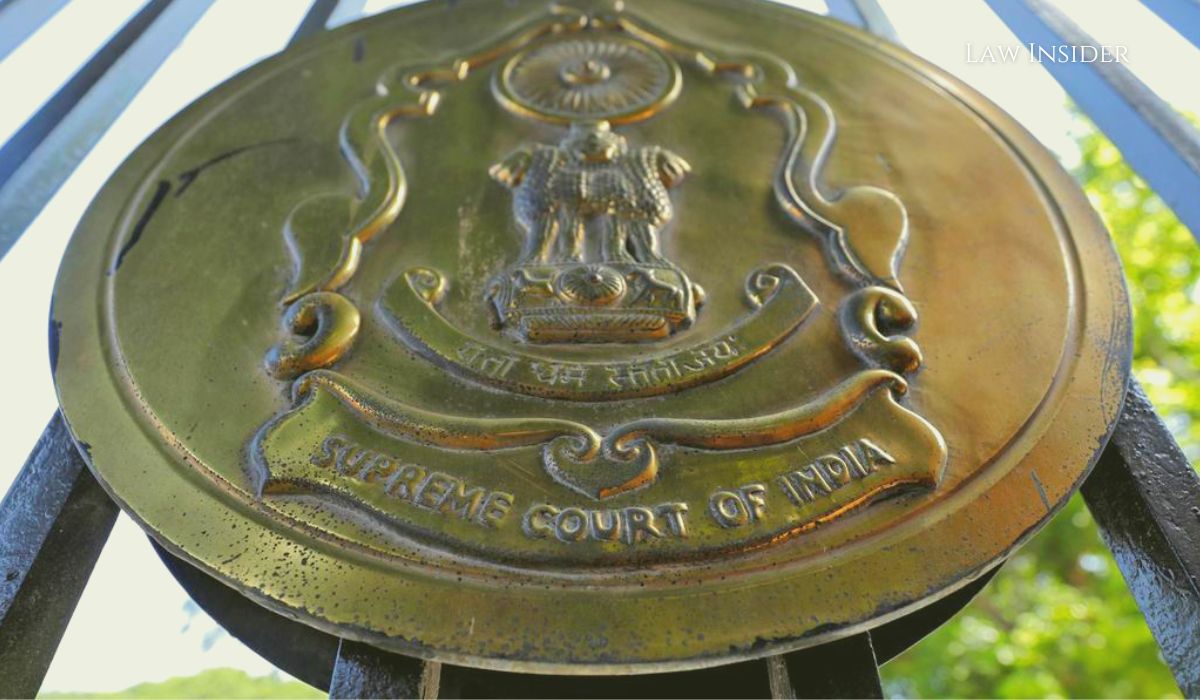Tanisha Rana
Published on: October 7, 2022 at 23:05 IST
In the case of M/S Emaar India Ltd. vs. Tarun Aggarwal Projects LLP & Anr., the division bench of Justice M.R. Shah and Justice Krishna Murari of the Supreme Court of India held that the appointment of the arbitrators was made without conducting a preliminary investigation and despite the fact that it was noted that a party does have the right to seek enforcement of an agreement before a court of law pursuant to Clause 36.
Facts of the Case
The initial petitioners engaged into a collaboration agreement for the creation of the residential colony, according to the case’s factual matrix.
After that, a disagreement between the parties developed, and it was claimed that the appellant had broken the Addendum agreement’s requirements.
The original petitioners then issued a legal notice requesting possession.
In this case, the original petitioners, who are now the respondents, chose an ex-High Court judge to act as their arbitrator because they thought arbitration could settle the conflict between the parties.
The appellant in this instance disagreed with the arbitrator’s appointment.
In this matter, the respondents sought the appointment of arbitrators in line with Clause 37 of the Addendum Agreement by submitting an application to the High Court pursuant to Sections 11(5) and (6) of the Arbitration Act.
The appellant, however, objected to the arbitration petition on the grounds that the dispute is covered by Clause 36 of the Addendum Agreement and not by Clause 37, which contains the arbitration clause.
Arguments
Appellant
The learned counsel appearing for the appellant has argued that in granting the application, the high court failed to take into account the fact that, in the appellant’s opinion, the disagreement arises under clause 36 of the agreement rather than clause 37.
It was also argued that any disagreement over Clauses 3, 6, or 9 must be addressed in a court of law and is not subject to arbitration.
It is argued that even though the High Court took note of Clauses 36 and 37, it selected the arbitrators without determining whether the dispute fits under Clause 36.
The learned counsel also cited the rulings in Indian Oil Corporation Limited vs. NCC Limited and Uttarakhand Purv Sainik Kalyan Nigam Limited vs. Northern Coal Field Limited as well as Vidya Drolia and Ors. vs. Durga Trading Corporation.
Respondent
According to a joint reading of Clauses 36 and 37 of the Agreement and the parties’ intention to resolve the dispute through arbitration in accordance with the Arbitration Act, the learned senior counsel appearing on behalf of the respondent has argued that there was no error made by the High Court in appointing the arbitrators.
Question Before the Hon’ble Court
- The short question which is posed for consideration of this Court is whether in the facts and circumstances of the case, the High Court is justified in appointing the arbitrators in an application under Section 11(5) and (6) of the Arbitration Act without holding any preliminary inquiry or inquiry on whether the dispute is arbitrable or not?
Observation of the Court
The Hon’ble court ruled that the High Court was at least required to hold a preliminary inquiry or review and prima facie determine whether the dispute falls under Clause 36 or not and whether the dispute is a dispute that can be resolved through arbitration by applying the law established by this Court in the aforesaid decisions and taking into account Clauses 36 and 37 of the Agreement.
Without conducting this initial investigation and despite having noted that, according to Clause 36, a party does have a right to seek enforcement of the agreement before a court of law, the arbitrators were nonetheless chosen solely on the basis that the Arbitration and Conciliation Act, 1966 is not prohibited by it.
The High Court, however, has not recognised or taken into account the fact that a dispute that is covered by Clauses 3, 6, and 9 of the Agreement is not subject to arbitration at all.
In light of this, the High Court’s contested judgement and order designating the arbitrators is unjustified and should be annulled and overturned.
“A preliminary inquiry on the aforementioned in light of the observations made by this Court in the cases of Vidya Drolia (supra) and Indian Oil Corporation Limited (supra), as well as the observations made here and there, but at the same time, the High Court has not held any preliminary inquiries on whether the dispute is arbitrable or not and/or whether the dispute falls under Clause 36 or not.”
The present appeal is successful in light of the foregoing and for the aforementioned causes. The High Court’s contested decision and order appointing the arbitrators in accordance with Addendum Agreement Clause 37 is hereby reversed and put aside.
After conducting a preliminary inquiry or review to determine if the dispute is arbitrable and/or whether it falls under Clause 36 of the Addendum Agreement or not, the issue is remitted to the High Court for decision on the application under Sections 11(5) and (6) of the Arbitration Act. In light of this, the current appeal is accepted.
Case Title- M/S Emaar India Ltd. vs. Tarun Aggarwal Projects LLP & Anr.
Bench of Judges- Justice M.R. Shah and Justice Krishna Murari

